|
If you attended an Easter Vigil Mass this year, then you participated in what St. Augustine called the “mother of all holy Vigils”(Sermo 219)—the day the Church receives many new Catholics through the sacraments of initiation: Baptism, Eucharist, and Confirmation. The newly baptized, or “neophytes,” (a Greek word meaning “new plant”) begin a fourth and final period of formation called mystagogy, which lasts the Easter Season until Pentecost. If you haven’t personally participated in the formal process of becoming Catholic as an adult (called the Rite of Christian Initiation of Adults, or RCIA, in parishes), chances are you haven’t heard this word recently… or maybe ever. What is Mystagogy? Our faith needs mystagogy first and foremost because of one simple reason: we celebrate and proclaim a mystery. As evangelists and catechists, I think it is important to recognize that for some people, the idea of religious “mystery” prima facie, conjures up images of a Da Vinci Code-esque Church shrouded in secrecy, New Age spiritualism, or even a pre-scientific belief in “magic.” But the sacraments do not initiate us into a special club or secret society. Through them, we are made participants in the life of Jesus Christ. Faith begins and ends in mystery, most especially the mystery of the Most Holy Trinity, “the central mystery of Christian faith and life . . . the source of all other mysteries of faith” (CCC 234). In the scriptures, liturgy, and sacraments, we truly encounter and participate in the Triune life of God. But no matter how intelligent or insightful we are, we will never fully wrap our minds around God’s glory or totally experience it with our five senses. Mystagogy comes from the Greek word meaning, “to lead through the mysteries.” The Catechism describes mystagogy as a “liturgical catechesis that aims to initiate people into the mystery of Christ” (CCC 1075). Mystagogy leads us from the external signs and rituals of the liturgy to the inner, spiritual meaning of the divine life they signify. Mystagogy is the form of catechesis that helps us unpack and explore the spiritual treasures contained in the sacraments by continuously reflecting on their meaning and significance in our personal lives of faith. Mystagogy was the way the early Church Fathers embraced and trained new Christians in the practices and beliefs of the faith. Perhaps the most well known teacher of mystagogy was St. Cyril of Jerusalem (315-386 CE), who delivered a famous series of sermons, known as “mystagogic catecheses,” during the time of Lent through the Easter Octave. After the Second Vatican Council, the Catholic Church revitalized this ancient practice, especially in the Rite of Christian Initiation of Adults. But mystagogy isn’t just for the newly baptized; it is the way every Catholic can continually deepen their relationship with Christ by daily drawing on the grace of the sacraments. Significance for our New Evangelization Just as Catholics are rediscovering the importance of the “kerygma” (Greek for “proclamation”) for evangelization, mystagogy is incredibly important in our approach to catechesis in the New Evangelization. John Paul II wrote, “Through catechesis the Gospel kerygma is gradually deepened . . . . and channeled toward Christian practice in the Church and the world” (Catechesi Tradendae, n. 25), specifically the form of mystagogy. Additionally, mystagogy serves as a trustworthy guide when reflecting on ways to improve our catechetical methods. Living the Mystery Daily Ongoing mystagogy is important because our relationship with the sacraments change as we grow and mature as individuals and meet new life challenges and circumstances. In turn, the sacraments really change us. Pope Benedict XVI said, “The mature fruit of mystagogy is an awareness that one's life is being progressively transformed by the holy mysteries being celebrated” (Sacramentum Caritatis n. 64). By reflecting regularly on the sacraments, we access an incredible strength for our daily tasks. Developing a practice of Eucharistic mystagogy can combat the routinization that often sets in to our receiving communion. For those who are married, or preparing for marriage, there is a mystagogy of marriage. With ongoing mystagogic reflection, you may discover new fruits of that sacrament in every season of life. Studying theology and the Bible is often an undervalued way of developing our spiritual life. Learning about someone or something is a sign of love, and we truly become what we behold (cf 2 Cor. 3:18). Reading the great books and sermons of Catholic authors and theologians greatly expands our hearts and minds to experience the truth and depth of our faith. The great Catholic philosopher Gabriel Marcel is attributed as stating, “Life is not a problem to be solved, but a mystery to be lived.” Mystagogy is the path leading Christians to learn to live the mystery of our faith. I encourage you to follow the path trod by St. Cyril up through popes John Paul II, Benedict XVI, and Francis, in making this incredible tradition and gift called “mystagogy” a part of your life. To learn more about Catechesis, please consider reading the General Directory for Catechesis or the National Directory for Catechesis. For more resources on Prayer and Catechesis, click here.
4 Comments
Beginning Tuesday, December 8th , the Catholic Church will begin to celebrate the Extraordinary Jubilee of Mercy. Throughout the 2016 liturgical year, the Church around the world is participating in, celebrating, contemplating, and commemorating God’s mercy in our lives. Pope Francis in his papal bull, Misericordiae Vultus, discusses what the Jubilee should look like: “We need constantly to contemplate the mystery of mercy. It is a wellspring of joy, serenity, and peace. Our salvation depends on it. Mercy: the word reveals the very mystery of the Most Holy Trinity. Mercy: the ultimate and supreme act by which God comes to meet us. Mercy: the fundamental law that dwells in the heart of every person who looks sincerely into the eyes of his brothers and sisters on the path of life. Mercy: the bridge that connects God and man, opening our hearts to the hope of being loved forever despite our sinfulness. At times we are called to gaze even more attentively on mercy so that we may become a more effective sign of the Father’s action in our lives. For this reason I have proclaimed an Extraordinary Jubilee of Mercy as a special time for the Church, a time when the witness of believers might grow stronger and more effective.” What is happening from December 8, 2015 to November 20, 2016 during the Jubilee? Beginning on the feast of the Immaculate Conception, Pope Francis will open up the holy door of St. Peter’s Basilica and allow all who enter to receive a plenary indulgence for their pilgrimage to the site. Pope Francis has emphasized the wish for individual dioceses by the power of the local bishops around the world to open their designated holy doors, in a sign of solidarity and universal pilgrimage for all people to attend and receive this grace. During the Jubilee Year, Pope Francis has called all of us to place special emphasis on understanding Christ’s mercy and how we can show that mercy to others. For myself, I will try to put special emphasis on what it means to show mercy by using the Corporal and Spiritual Works of Mercy as a guide throughout 2016. The Works of Mercy have always served as a good way of measuring what I am called to do as a Catholic. Throughout the year, I would like to commit to praying for others in addition to my family, friends, and myself. I would like to pray especially for those I do not know: the imprisoned, the homeless, and those suffering in silence—that all may know of the mercy of God. Even though I am a volunteer catechist at my local parish, I still want to try to incorporate more works of mercy into my life. As much as it may help others, it ultimately provides me an opportunity to express my faith and learn and grow in my appreciation of God. In simple acts of charity, such as donating platelets frequently for those who are victims of cancers and accidents in my local area, I hope to express the understanding of mercy that we are trying to emphasize during the upcoming Jubilee of Mercy. It is my hope that this year you and your family will take an intentional step to incorporate the Works of Mercy into your family prayer life and live more fully the mission of Christ in the world today.
I have been taught lectio divina in the past, which I practiced fervently at one time and set aside as I pursued other spiritual interests. Lectio divina, though, has never been put together for me quite the way Fr. Chris Hayden (a New Testament scholar, author, and a priest in the Diocese of Ferns, Ireland) was able to do when I recently attended his seminar “Praying the Scriptures.” As a result, I have refreshed my own spiritual life and have reincorporated lectio divina into my spiritual repertoire. My point here is not to relay new facts but (as Fr. Chris would say) to rehearse what we already know – to cement who we are as a people who want to pray, who want to grow in the spiritual life.
Lectio divina (Latin for “divine reading”) was not something new to Christians but flowed out of the Hebrew method of studying the Scriptures, haggadah, or learning by the heart: “The word is very near to you; it is in your mouth and in your heart for you to observe” (Deut 30:14). While many Church Fathers stressed the prayerful reading of the scriptures, Origen is credited with the first use of the term “lectio divina” in the 3rd century: “While you attend to this lectio divina, seek aright and with unwavering faith in God the hidden sense which is present in most passages of the divine Scriptures” (Epistle to Gregory 4). Traditionally, lectio divina is a Benedictine practice of praying the scriptures that consists of reading, meditating, praying, and contemplating God’s Word in order to grow in our relationship with God. Saint Benedict first established it as a Monastic practice in the 6thcentury in which the four parts were not so much steps but rather moments prompted by the Holy Spirit. During the 12th century, the Carthusians formalized a scholastic approach (“the Monk’s Ladder”) of lectio (reading), meditatio (meditation/reflecting), oratio(prayer/responding), and contemplatio (contemplation/resting). We distinguish lectio divina from reading the Bible for enlightenment or encouragement, which we may do individually or together as in a Bible study group, and from praying the scriptures in common. Lectio divina is a practice that uses thoughts, images, insights, and inner silence to enter into a conversation with God. There are varying approaches to lectio divina, but in reality, simplicity is at the heart of the practice. After Vatican II and the document Dei Verbum that encouraged lay people and priests to use lectio divina, there has been a resurgence in its exercise. When we read Scripture, we should be doing so not just as an intellectual activity but also as a means of gathering its intention and meaning for our lives. Lectio divina will transform you for transformation is at its core – whether you realize that transformation consciously or not, and whether you reflect that transformation visibly or not. To appreciate fully lectio divina, we must understand prayer as a relationship between God and ourselves. Through prayer, we enter into the abiding relationship of unconditional love of the Holy Trinity. Three key underpinnings of our prayer life should be humility, heart, and listening. In prayer, we enter into humility, deflating our egos, realizing we are not God. Our humility helps us discern the true self from the false self. We continue to pray in order to break open our hearts to God, to realize what is going on inside ourselves for the heart of prayer is not what we get but rather what we become. We all know we should be receptive to God heeding the advice of Eli to Samuel, “Speak Lord, your servant is listening” (1 Sam 3:1-10), but many of us might prefer to tell God in prayer, “Listen Lord, your servant is speaking!” As anyone who has been successful with Christian meditation or contemplative prayer will attest, we need to make time and spaces for silence so we can listen. What should we do, though, if our prayers seem to be unanswered? Fr. Chris offers five guides or reasons to continue in prayer (he admits, certainly, there is not just five, but I find the five he presented crucial) even when our prayer life seems to be in a drought:
Because we have the Bible, the living Word of God, our spirituality is not a set of speculations. The Bible is our story – our metanarrative. Our metanarrative unites all of our individual stories into a collective under the overarching theme of God’s eternal love. We find today that the separate designations of yours and mine drive our society; today’s society is certainly no metanarrative, no uniting of us all. Within the Biblical texts, however, we find our collective and individual stories in which we participate along with Christ in the Trinitarian love. We can break our metanarrative into four acts: Act I: The beginning; Act II: The Fall; Act III: Redemption; and Act IV: Fulfillment. Our story begins with life (the “Tree of Life” in Genesis) and ends with life (the “New Order” in Revelations as found in Christ.) We find ourselves living in the drama between Acts II and III, that constant struggle of our lives that tugs between our disobedience and our obedience as we reach for that time of fulfillment. With this acceptance of the Bible as our metanarrative and our understanding of prayer, especially the reasons for continuing in prayer when our prayer life is dry, we can appreciate the power of praying the scriptures to transform our lives. Lectio divinabecomes, in reality, so simple.
Fr. Chris told me not to give him credit, but I must at least thank him for traveling to Great Falls, Montana, for sharing his joy of the faith, and for his stimulating way of presenting prayer, scripture, and the ancient art of lectio divina that inspired me to take a fresh look at how I pray the scriptures. I hope I have given him due credit by relaying the simplicity of lectio divina and its importance in helping us live out our shared metanarrative of God’s love. With Fr. Chris’ inspiration, I renew myself to the simplicity of lectio divina, enhancing my spiritual life, and I pray: God help us live our story, our metanarrative, as we pray for our transformation in You, our destination. Fawn Waranauskas teaches in the Catholic Catechesis Certificate Program for Saint Joseph’s College Online. This blog post was first published on May 27th on the St. Joseph’s College of Maine Theology Faculty Blog. Click here to learn more about our cooperative alliance with St. Joseph’s College Online “…we even boast of our afflictions, knowing that affliction produces endurance, and endurance, proven character, and proven character, hope, and hope does not disappoint, because the love of God has been poured out into our hearts through the Holy Spirit that has been given to us.”
Romans 5:3-5 A few weeks ago, during our celebration of the Solemnity of the Most Holy Trinity, this portion of St. Paul’s letter to the Romans was read to faithful Catholics throughout the world. I had the privilege of attending a bilingual Mass that weekend with my girlfriend, Kara, in a high school gymnasium. The different setting, unfamiliar language, and unusually large number of altar servers hardly crossed my mind as we participated in Mass at Most Holy Trinity Parish, on this, their solemnity. It was a beautiful liturgy to say the least! What struck Kara and me most about our experience, however, were these lines from the second reading: How many of us know someone who is afflicted? We all have family members, friends or colleagues that are struggling with cancer, unemployment, depression, etc. In the daily news - local, national and international - we hear about gun violence, war, natural disaster, and famine. Even more simplistically, we each have ‘good days’ and ‘bad days.’ St. Paul reminds us that affliction is not something to run from because ultimately, we “boast in hope of the Glory of God” (Romans 5:2). His ‘flow chart of hope’ is a reassuring message of what true faithfulness yields and how God makes His love present to each of us in our struggles. The alternatives to hope (sin, despair, discouragement, impatience, fear, anxiety, guilt…)_ when left unchecked, are a rejection of God’s invitation to deeper communion with Him. Very basically, this reading offers us a roadmap to understand how affliction does not have the final word; hope does! Pope Benedict XVI’s homily at Nationals Stadium during his 2008 Apostolic Visit to the United States speaks to this point: “It is a prayer of unfailing hope, but also one of patient endurance and, often, accompanied by suffering for the truth. Through this prayer, we share in the mystery of Christ’s own weakness and suffering, while trusting firmly in the victory of his Cross.” We are able to endure our own afflictions because of the hope promised to us by God. Pain, suffering, and struggle are not pleasant, especially when they are affecting someone we know and love. As people of faith, though, we believe God is with us, united in our affliction and made present to us in the love we experience. This faith, this hope, and this love, offer us momentary comfort and strength as we journey to the ultimate glory of complete communion with God. We have a common call to share this hope with those around us, especially with those who find it difficult to endure in times of struggle. This simple reminder of the universality of the Church also reminds us that through prayer, “we become capable of the great hope, and thus we become ministers of hope for others” (Spe Salvi, 34). And so, as we are confronted with affliction, our prayer should be one of hope. As others struggle with affliction, our response should be one of hope. And as we begin to question why affliction affects our lives, we must remember that affliction yields hope; hope in the love of God. “Hope, O my soul, hope. You know neither the day nor the hour. Watch carefully, for everything passes quickly, even though your impatience makes doubtful what is certain, and turns a very short time into a long one. Dream that the more you struggle, the more you prove the love that you bear your God, and the more you will rejoice one day with your Beloved, in a happiness and rapture that can never end.” St. Teresa of Avila, The Exclamations of the Soul to God, 15:3. Jonathan Jerome is the Director of Catholic Campus Ministry at the University of Pittsburgh Johnstown. Editor's Note: This post was originally published on June 13, 2013 To celebrate the Catholic Apostolate Center passing 50,000 "likes" on Facebook, Communications and Social Media Intern Andrew Buonopane created a list of 50 Ways to Enjoy your Faith. This is the last post in a five-part series where we have shared the whole list! #10- Read Baptismal Promises During the Easter season, we are sprinkled with Holy Water during Mass and during the Easter Vigil we renewed our Baptismal promises with those who were being baptized that night. Take some time to go back and read those promises. How has your understanding of these promises evolved as you’ve gotten older? #9- Learn more about your Confirmation saint Even though you probably know something about your Confirmation saint when you chose him or her, learning more about them is a great way to strengthen your faith! #8- Learn more about your name saint Were you named after a particular saint? Spend a few minutes researching your name saint and learn about why your parents may have chosen to name you after him or her. #7- Devotion to Our Lady of Guadalupe, Lourdes, and Fatima Our Blessed Mother is known by many names and titles throughout the world. Our Lady of Guadalupe, Lourdes, and Fatima are just a few. What is your favorite devotion to Our Lady? #6- Learn more about Catholic Social Teaching We often hear talk about Catholic Social Teaching, but have you ever studied the tenants of Catholic Social Teaching? Try learning more about this important facet of our faith, one that Pope Francis has urged us to focus on! #5- Vocational Discernment Resources Not sure of your vocation in life? Check out our Vocational Discernment resources, or read through these great blog posts about vocations! #4- Joyfully TALK about your faith TALKing about faith is a great acronym to help with Evangelization. Tone it down, Assume the best intentions, Limit your claims, Keep to the issue. The New Evangelization calls for all of us to talk more about our faith. For more information, see our New Evangelization resource page! #3- Who Jesus Is: God and Man One of the core tenants of our faith is that we understand Christ as both Human and Divine. Reflect on what this might mean for your own understanding and encounter with Christ. #2- Receive Jesus Christ. #1- Say “Thank You” to The Holy Trinity! The God who is love has given us everything! It’s easy to pray to God for things we want or things that are troubling us, but never forget to pray simply to thank God for all his blessings!
To read the previous installments in this series, click here: Part I | Part II | Part III | Part IV Andrew Buonopane is the Communications and Social Media Intern at the Catholic Apostolate Center “Wow, you got your hands full.”
If you’re a parent, it’s possible that you have heard this statement thrown in your direction before. My wife and I, as we approach our seventh wedding anniversary, have three children. I find it amazing when people say “you got your hands full” when I am only holding one of my children. Imagine if they saw me when all three were climbing on me at the same time, or when they’re hungry and in a seemingly rehearsed chorus they ask for different foods in harmony. With the Third Extraordinary Synod of Bishops set to meet this Fall, Pope Francis and bishops from around the world will be discussing issues related to marriage and family life. I believe that the Catholic Church’s vision for married life offers a fresh and engaging perspective for our contemporary world. St. John Paul II declares, “The communion of love between God and people, a fundamental part of the Revelation and faith experience of Israel, finds a meaningful expression in the marriage covenant which is established between a man and a woman” (Familiaris Consortio 12). The approaching synod has caused me to reflect on how I live my vocation to married life. In his book Divine Likeness, Cardinal Marc Ouellet suggests that since Vatican II and St. John Paul II, “the theology of marriage has been developed in terms of ‘gift’…” (Ouellet 150-151). Men and women are created in the image of God (cf. Genesis 1:26-27). One of the great theological insights of Vatican II was the idea that “man, who is the only creature on earth which God willed for itself, cannot fully find himself except through a sincere gift of himself” (Gaudium et Spes 24). Only through a gift of self can people find their true purpose and meaning in life. This is because a total self gift both participates in and manifests the divine life to which we’re invited. Many of us are familiar with St. John Paul II’s Wednesday audiences which have become what we call the “Theology of the Body.” The giving of oneself in marriage, including in the conjugal act, is discussed in terms of a total gift of oneself. In a marriage covenant, husband and wife can manifest Trinitarian love, and the communion to which all people are drawn. For a husband or wife to hold back anything would be a betrayal of the communion which they’re guided by the Holy Spirit to manifest. Cardinal Angelo Scola in The Nuptial Mystery draws from St. John Paul II’s “Theology of the Body” and describes how the perichoresis of the Triune God is based on total self-giving. This is described beautifully in the following: Communio personarum exists in its perfection in the Three in One, because the Father gives himself completely to the Son without keeping anything of his divine essence for himself… The Son himself gives back the same, perennial divine essence. This exchange of love between the two is so perfect as to be fruitful in a pure state: it gives rise to another person, the Holy Spirit (donum doni) (Scola, 131). The Father completely gives everything He is to the Son; the Son completely gives Himself back in totality to the Father. Their self-giving love is so total and so perfect that it is fruitful and a third Person arises, the Holy Spirit. Cardinal Scola makes the connection between this Trinitarian relationship and the relationship between husband and wife. A husband and wife can give a total gift of self, offering all that they are, and in the context of the conjugal act, it is possible that a new person can be created. But Cardinal Ouellet also mentions that whether or not a new child is conceived, the love of the spouses is fruitful in that they are manifesting the Trinitarian gift of self (cf. Ouellet 172). There is an element of sacrifice involved here. The spouses freely commit to each other, accepting the new life if God should bless them with a child. However, if a couple experiences difficulty in conceiving, they also accept the sacrifice associated with not being able to bear children. In both cases, the spouses who completely give of themselves in love have the opportunity to offer themselves as a spiritual sacrifice to the Lord (cf. Romans 12:1) and to participate in the economy of salvation by manifesting Trinitarian love through a gift of self. So my response to my interlocutors should be “Yes, I have my hands full: they’re full with my gift of self to the Lord. I give Him all that I am in loving surrender in an act of self-emptying gift-giving aimed at being drawn deeper into the mystery of the Trinitarian communio personarum, and this participation in the divine life penetrates who I am, giving me the grace and love to offer myself as a self gift to my wife.” Do you think that would get their attention? Either way, what is essential to remember is that God invites us to participate in His very own divine life and we can experience true love through sincere acts of self gift. Edward Trendowski is Coordinator for Catechetical Resources for the Diocese of Providence and teaches pastoral theology for Saint Joseph’s College Online. This blog post was first published on the St. Joseph’s College of Maine Theology Faculty Blog. Click here to learn more about our cooperative alliance with St. Joseph’s College Online "The fruit of sacramental life is both personal and ecclesial. For every one of the faithful on the one hand, this fruit is life for God in Christ Jesus; for the Church, on the other, it is an increase in charity and in her mission of witness" (Catechism of the Catholic Church 1134).
I am a liturgical - and sacramental - junky. Whether it be when the organ plays, the incense burns, wooden crosses process or babies cry- I love being part of liturgies! But my love of liturgy does not end with the communal gathering or the symbolic signs. Rather, the reason I love liturgy is that I believe, as Fr. Aidan Kavanagh, OSB, a liturgical theologian, put it, “liturgy is doing the world the way the world was meant to be done.” In the liturgy we are participating in the life of God. We are entering into, and living within, the eternal circulation of the Trinity’s love! But what does that actually mean? It means that we are not simply attending a gathering. We do not show up to another building for another event. It is not a lecture or a show. Rather it is a transformation of ourselves with our God, who is love, so we can go out and witness to that love and act out of it. This is why I love liturgy. It calls me out of myself. It shows me God acting in all things and then sends me out to be his hands and feet. Liturgy connects me to the Body of Christ and reminds me that I am to care for that body. It shows me that the world can be used to glorify God and that the world itself, being God’s creation, is a symbol of His active presence in my life. David Fagerberg, a professor of theology at the University of Notre Dame, illustrates this thought saying, “Water could be a sign of God’s love if I gave a cup of it to someone who is thirsty, but not if I use up on my golf course the water he needs for his vegetable patch.” Liturgy reminds and shows us how to act out of love, not pride; to live out of hope, not despair; and to be guided by compassion, not self interest. Pope Francis affirms that we must be a living Church: a Church for the poor, a Church that acts. He emphasizes that, “Jesus teaches us another way: Go out. Go out and share your testimony, go out and interact with your brothers, go out and share, go out and ask. Become the Word in body as well as spirit.” We encounter, learn and receive Christ in the Liturgy in order that might know Him and act as His Body for the world. This Sunday we must remember that we are participating in something that goes beyond the building, the preaching and the music. We must remember that we are encountering Christ and he is teaching us a way that asks us to share in his mission of building the kingdom of God by acting out of the truths of love, justice, kindness, and peace. Pam Tremblay is a collaborator with the Catholic Apostolate Center. She currently works at St. John's University in Queens, NY as Resident Minister for Social Justice. Editor's Note: This post was originally published on July 30, 2013 “Do not worry about how or what you are to speak in your defense, or what you are to say; for the Holy Spirit will teach you in that very hour what you ought to say.” - Luke 12:11-12
“Moses, however, said to the LORD, ‘If you please, LORD, I have never been eloquent, neither in the past, nor recently, nor now that you have spoken to your servant; but I am slow of speech and tongue.’ The LORD said to him, ‘Who gives one man speech and makes another deaf and dumb? Or who gives sight to one and makes another blind? Is it not I, the LORD? Go, then! It is I who will assist you in speaking and will teach you what you are to say.’" - Exodus 4:10-12 I wouldn’t necessarily go so far as to characterize myself “slow of speech and tongue” as Moses does, but I do face certain insecurities when it comes to speaking out (about the faith or any topic). I am a perfectionist. I often hold back from evangelizing out of fear that I will say the wrong thing, or even the right thing but not do it justice. This fear is the reason I prefer writing; I can revise until the text says (almost) precisely what I want. However, I am finding more and more that I am being thrown into situations which do not have space for revision. How can I be sure to respond in a way worthy of my baptismal call? When we volunteered together on a recent Confirmation retreat, my friend gave an eloquent reflection on the person of the Holy Spirit as a gift and an advocate to us and for us. The gifts of the Holy Spirit - including those which precede eloquent speech, such as knowledge and understanding - are truly the gift of the Holy Spirit, the person of the Trinity. We are given God, whom we can call to our side to provide us with whatever strength we currently need... even when we’re unsure what we truly need. St. Paul points out that “we do not know how to pray as we ought, but the Spirit itself intercedes with inexpressible groanings” (Romans 8:26). My friend, who is a high school teacher, found that on the days when he remembered to pray to the Holy Spirit before class, the class had the most fruitful discussions. University of Notre Dame President Emeritus and civil rights champion Rev. Theodore Hesburgh, CSC, repeats the simple prayer “Come, Holy Spirit” hundreds of times throughout the day, in immediate preparation for every situation. If that prayer is good enough for him, it’s good enough for me. While comforting, the Spirit's guidance does not excuse us from all responsibility in developing the coherent response of the Church to the world. St. Peter reminds the faithful that we must "always be ready to give an explanation to anyone who asks you for a reason for your hope" (1 Peter 3:15). Even with the Holy Spirit as our advocate, preparation is necessary. I must be disciplined and conscientious in my study for my upcoming comprehensive examinations. I must continue to grow in prayer, as well as increase my knowledge of my faith and I must be aware of my witness to the faith in word and deed with each person I encounter Yet once the critical moment of speech or witness arrives, just breathe a call to the Holy Spirit and take God’s own Word for it: Do not worry about what you are to say (Lk 12:11). Come, Holy Spirit, fill the hearts of your faithful. Enkindle in us the fire of your love. Send forth your Spirit, and we shall be created, and You shall renew the face of the earth. Laura Berlage holds a M.A. in theology from the University of Notre Dame and currently works as a Pastoral Associate in the Archdiocese of St. Louis, MO. “The fruit of sacramental life is both personal and ecclesial. For every one of the faithful on the one hand, this fruit is life for God in Christ Jesus; for the Church, on the other, it is an increase in charity and in her mission of witness" (Catechism of the Catholic Church 1134).
I am a liturgical - and sacramental - junky. Whether it be when the organ plays, the incense burns, wooden crosses process or babies cry- I love being part of liturgies! But my love of liturgy does not end with the communal gathering or the symbolic signs. Rather, the reason I love liturgy is that I believe, as Fr. Aidan Kavanagh, OSB, a liturgical theologian, put it, “liturgy is doing the world the way the world was meant to be done.” In the liturgy we are participating in the life of God. We are entering into, and living within, the eternal circulation of the Trinity’s love! But what does that actually mean? It means that we are not simply attending a gathering. We do not show up to another building for another event. It is not a lecture or a show. Rather it is a transformation of ourselves with our God, who is love, so we can go out and witness to that love and act out of it. This is why I love liturgy. It calls me out of myself. It shows me God acting in all things and then sends me out to be his hands and feet. Liturgy connects me to the Body of Christ and reminds me that I am to care for that body. It shows me that the world can be used to glorify God and that the world itself, being God’s creation, is a symbol of His active presence in my life. David Fagerberg, a professor of theology at the University of Notre Dame, illustrates this thought saying, “Water could be a sign of God’s love if I gave a cup of it to someone who is thirsty, but not if I use up on my golf course the water he needs for his vegetable patch.” Liturgy reminds and shows us how to act out of love, not pride; to live out of hope, not despair; and to be guided by compassion, not self interest. Pope Francis affirms that we must be a living Church: a Church for the poor, a Church that acts. He emphasizes that, “Jesus teaches us another way: Go out. Go out and share your testimony, go out and interact with your brothers, go out and share, go out and ask. Become the Word in body as well as spirit.” We encounter, learn and receive Christ in the Liturgy in order that might know Him and act as His Body for the world. This Sunday we must remember that we are participating in something that goes beyond the building, the preaching and the music. We must remember that we are encountering Christ and he is teaching us a way that asks us to share in his mission of building the kingdom of God by acting out of the truths of love, justice, kindness, and peace. Pam Tremblay is a collaborator with the Catholic Apostolate Center. She currently works at St. John's University in Queens, NY as Resident Minister for Social Justice. “…we even boast of our afflictions, knowing that affliction produces endurance, and endurance, proven character, and proven character, hope, and hope does not disappoint, because the love of God has been poured out into our hearts through the Holy Spirit that has been given to us.” ~Romans 5:3-5
A few weeks ago, during our celebration of the Solemnity of the Most Holy Trinity, this portion of St. Paul’s letter to the Romans was read to faithful Catholics throughout the world. I had the privilege of attending a bilingual Mass that weekend with my girlfriend, Kara, in a high school gymnasium. The different setting, unfamiliar language, and unusually large number of altar servers hardly crossed my mind as we participated in Mass at Most Holy Trinity Parish, on this, their solemnity. It was a beautiful liturgy to say the least! What struck Kara and me most about our experience, however, were these lines from the second reading: How many of us know someone who is afflicted? We all have family members, friends or colleagues that are struggling with cancer, unemployment, depression, etc. In the daily news - local, national and international - we hear about gun violence, war, natural disaster, and famine. Even more simplistically, we each have ‘good days’ and ‘bad days.’ St. Paul reminds us that affliction is not something to run from because ultimately, we “boast in hope of the Glory of God” (Romans 5:2). His ‘flow chart of hope’ is a reassuring message of what true faithfulness yields and how God makes His love present to each of us in our struggles. The alternatives to hope (sin, despair, discouragement, impatience, fear, anxiety, guilt…)_ when left unchecked, are a rejection of God’s invitation to deeper communion with Him. Very basically, this reading offers us a roadmap to understand how affliction does not have the final word; hope does! Pope Benedict XVI’s homily at Nationals Stadium during his 2008 Apostolic Visit to the United States speaks to this point: “It is a prayer of unfailing hope, but also one of patient endurance and, often, accompanied by suffering for the truth. Through this prayer, we share in the mystery of Christ’s own weakness and suffering, while trusting firmly in the victory of his Cross.” We are able to endure our own afflictions because of the hope promised to us by God. Pain, suffering, and struggle are not pleasant, especially when they are affecting someone we know and love. As people of faith, though, we believe God is with us, united in our affliction and made present to us in the love we experience. This faith, this hope, and this love, offer us momentary comfort and strength as we journey to the ultimate glory of complete communion with God. We have a common call to share this hope with those around us, especially with those who find it difficult to endure in times of struggle. This simple reminder of the universality of the Church also reminds us that through prayer, “we become capable of the great hope, and thus we become ministers of hope for others” (Spe Salvi, 34). And so, as we are confronted with affliction, our prayer should be one of hope. As others struggle with affliction, our response should be one of hope. And as we begin to question why affliction affects our lives, we must remember that affliction yields hope; hope in the love of God. “Hope, O my soul, hope. You know neither the day nor the hour. Watch carefully, for everything passes quickly, even though your impatience makes doubtful what is certain, and turns a very short time into a long one. Dream that the more you struggle, the more you prove the love that you bear your God, and the more you will rejoice one day with your Beloved, in a happiness and rapture that can never end.” St. Teresa of Avila, The Exclamations of the Soul to God, 15:3. Jonathan Jerome is the Director of Catholic Campus Ministry at the University of Pittsburgh Johnstown. St. Joseph is known as the Shadow of the Eternal Father, the Perpetual Adorer, the Patron of the Universal Church, the Patron of the Suffering and Dying, the True Foster Father of Jesus Christ, and Most Chaste Spouse of the Ever-Virgin Mary. He shows how a person must rely on the Father’s providence, trust the boldness of the Holy Spirit, and cherish the Incarnate Jesus, all while staying close to the Virgin Mary. St. Joseph is a model of faith and in a unique way he upholds the dignity of all vocations.
Joseph survives and thrives as a person of faith by abandoning his life and family completely to God. The Devil, Herod, and everyday difficulties, like not being able to find a place for his wife to give birth, threaten Joseph’s most precise gifts. A faithful person humbly resigns what they care about most to the Giver of All Gifts only to receive back what is best blessed and renewed. Joseph protects his family through surrendering them to God. How wonderful St. Joseph’s prayers must have been. The way he took his fears and insecurities to God to receive true strength must have been so beautiful. There are many ways that we know that St. Joseph’s faith was profound. The Virgin Mary knows for sure that she has never been with a man, but Joseph does not. St. Joseph trusted in the words of an angel in a dream. The angel said, “Joseph, son of David, do not be afraid to take Mary home as your wife, because what is conceived in her is from the Holy Spirit” (Mt. 1:20). Catholic theology of the Trinity had not been developed yet leaving Joseph not knowing with any sort of clarity who this “Holy Spirit” was that had impregnated his fiancée. St. Joseph demonstrates that his faith is not the kind that limits God by being attached to personal plans and expectations, but is one that allows God to act boldly. His faith is fulfilled by being lived out; he did take Mary as his bride, he did raise Jesus as his son, he did go wherever the Lord commanded him. Joseph fled to Egypt when Jesus’ life was being threatened and he returned home when he was told, doing everything in accordance with God’s will and timing. The obedient Joseph, as the Perpetual Adorer of the Christ-child can also help us grow in intimacy with Christ. Have we ever realized that the baby Jesus was most likely birthed into the callused hands of his carpenter foster-father? St. Joseph knew Jesus in a radically unique and intimate way. Joseph was able to adore the Eucharist while it was still breathing. We can relate to Joseph in the struggles that he faced and the fact that he was not spared from original sin. He was broken, flawed, sinful, fearful, and even being tempted. Joseph, as most chaste spouse, did not reduce Mary to an object of pleasure but he honored her as a whole person. We can imagine that Joseph embraced his call to chastity not begrudgingly but with great joy. Their intimacy honors the glory of creation by neither of them trying to dominate or manipulate the other for personal gain. How immaculate their interactions must have been! St. Joseph and Mary model for us a pure intimacy rooted in trust, commitment, and the will of God. With these considerations in mind we see St. Joseph as an inspiration for all people because he was called to marriage, parenthood, and celibacy. Whether we are called to marriage, religious life, priesthood, or the single-life we should entrust ourselves to St. Joseph and know that he understands the burdens that we carry. As a good father he will teach us to trust God completely and to allow the Holy Spirit to move in dramatic and unexpected ways. With Joseph as a model of faith we will honor the dignity of all people, love Mary, and intimately adore the Incarnate Christ. Daniel Hoover works at St. Mary’s Parish in the Diocese of Wilminigton, DE as a Lay Ecclesial Minister. A few weeks ago my first niece was born. Needless to say, the pride of being an aunt flooded me and the joy of this news was shared with every person I spoke to. In these conversations I had one of those “you know you are a Catholic when” moments. The question that persistently followed “What is her name?” was “When is she going to be baptized?” This got me to think, “What’s the big deal?” And then the Holy Spirit hit me with, “PRIEST, PROPHET and KING!”
In infant baptism, we are not only cleansed of original sin and saved from “eternal damnation.” We are chosen and claimed. When immersed into the water with the Trinitarian rite – Father, Son, and Holy Spirit – baptism is signifying and actually bringing about “death to sin and entry into the life of the Most Holy Trinity through configuration to the Paschal mystery of Christ” (CCC 1239). But our rite doesn’t end there. As. Fr. Kevin Nadolski, OSFS, puts it, “we are then slathered in Jesus gel and given a crown of royalty.” In being anointed with Sacred Chrism, we are chosen by God, claimed by Christ and through the Holy Spirit are named priest, prophet and king (CCC 1241). St. Francis de Sales writes, “Be who you are, and be that well.” We, as baptized, are priests. We are prophets. We are royalty. The call as baptized disciples is to live these attributes and to live them well. Lumen Gentium explains that by our priestly duty we are called to “consecrate the world itself to God” (LG 34) through our works, prayers, activities, and daily responsibilities. It explains that as prophets we are to announce Jesus Christ by life and word and be witnesses to “life springing forth from faith (LG 35).” And lastly, that as His disciples we are named as His kings so that we too “might be constituted in royal freedom and that by true penance and a holy life [we] might conquer the reign of sin in [ourselves]” (LG 36). This winter, my niece will join us in our royal dignity and become a priest, prophet and king! At that time I will begin to tell her, “Be who you are, and be that well,” and will continue to say that as she grows. The challenging part will be looking at myself as a Baptized Catholic and answering the question, “Am I being who I am – priest, prophet and king – and being that well?” Pam Tremblay is the Blog Editor for the Catholic Apostolate Center. Tomorrow, the Catholic Apostolate Center will celebrate one year as an organization dedicated to reviving faith, rekindling charity and forming apostles. The support and encouragement that we have received has been amazing. Doors opened and the Holy Spirit moved as we collaborated with the Most Holy Trinity and with our brothers and sisters in Christ. We are grateful for what has been and the many great things that God, the Infinite Love has planned for us.
A few days ago, we arrived at the threshold of the Year of Faith. The door of faith is not simply one that leads inward to our own personal revival of faith, but also leads outward into a world in need of the transforming love of Christ. The confession of faith enkindles in us the flame of charity that enlightens those we encounter with the Gospel message. We are then moved outward as Pope Benedict says: “‘Caritas Christi urget nos’ (2 Cor 5:14): it is the love of Christ that fills our hearts and impels us to evangelize. Today as in the past, he sends us through the highways of the world to proclaim his Gospel to all the peoples of the earth (cf. Mt 28:19). Through his love, Jesus Christ attracts to himself the people of every generation: in every age he convokes the Church, entrusting her with the proclamation of the Gospel by a mandate that is ever new. Today too, there is a need for stronger ecclesial commitment to new evangelization in order to rediscover the joy of believing and the enthusiasm for communicating the faith” (Porta Fidei, no. 7). During this Year of Faith, we invite you to revive faith and rekindle charity. Pope Benedict calls faith and charity, the “pillars of the New Evangelization” (Opening Message to the Synod of Bishop for the New Evangelization). The Catholic Apostolate Center will assist you in your formation in faith and charity as you move outward as an apostle. This blog, a sharing of faith and charity by apostles of Christ, will offer insights more frequently. Reflect on the posts that are shared and know that we are together with you! May the charity of Christ urge you on! Fr. Frank S. Donio, S.A.C., D. Min is Director of the Catholic Apostolate Center “I believe in dinosaurs!” tenaciously proclaimed the small third grade boy sitting in the front row. It seemed as though my conviction of teaching belief and our creed back-fired on me. My optimistic side gave me some consolation: “at least he believes in something.” And the third grader in me wanted to scream with him, “I love dinosaurs!” Throughout the next year I will be embarking on the adventure of teaching the Catholic faith to a bunch of third grade boys and girls. But the question that prompted the response of dinosaurs, “What do you believe?”, is not a question that ends with the completion of third grade religious education. It’s a question to be asked daily, to be wrestled with daily, and most importantly, to be lived daily.
Today, October 11th 2012, The Church begins her celebration of the Year of Faith. This is a faith that begins at baptism and brings us into the Triune God who is Love. In this faith we profess “the Father, who in the fullness of time sent his only Son for our salvation; Jesus Christ, who in the mystery of his death and resurrection redeemed the world; the Holy Spirit, who leads the Church across the centuries as we await the Lord’s glorious return" (Porta Fidei). The Holy Father is calling for us to CELEBRATE this faith! He is asking us to “rediscover the journey of faith so as to shed ever clearer light on the JOY and renewed enthusiasm of the encounter with Christ.” In short, he is asking us “what do you believe?” and “how do you live it?” Today, we also begin the renewal of our blog. As we, the Catholic Apostolate Center, celebrate this Year of Faith, we wish to share stories of lived belief through examples of discipleship and evangelization. We endeavor to be a place dedicated to reviving faith, rekindling charity, and forming apostles. It is a place to face the question “What do you believe?” Hopefully in our searching and questioning together we will be able to come up with an answer that goes beyond dinosaurs. Journey with us! Listen to our stories and share your own! Ask questions, post comments, share wisdom and resources. By virtue of our baptism, we are called to live our faith through the Christian charity. Journeying alongside one another, may we meaningfully celebrate this Year of Faith in order to shed light on the joy of our Catholic identity! Today I leave you with the question, “What do you believe?” Maybe it’s love, maybe it’s Christ, maybe it’s dinosaurs! St. Paul tells us to “examine everything carefully; hold fast to that which is good” (1 Thess 5:21). May our belief lead us to a deeper love of God, the Supreme Good! During this Year of Faith, may the love of Christ, rooted in belief, urge us on! (cf. 2 Cor 5:14) Pamela Tremblay is the Blog Editor for the Catholic Apostolate Center. |
Details
Archives
April 2024
Categories
All
|
About |
Media |
© COPYRIGHT 2024 | ALL RIGHTS RESERVED

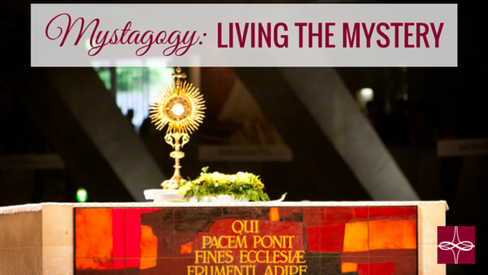

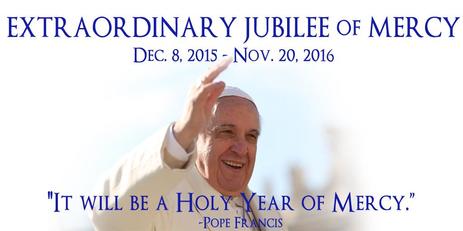

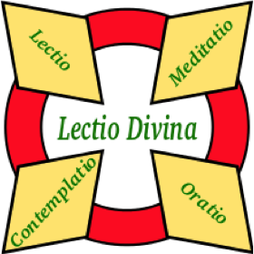
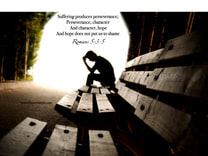

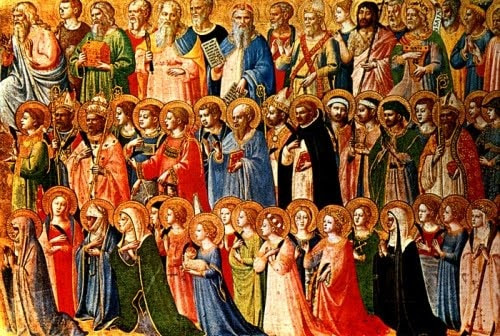
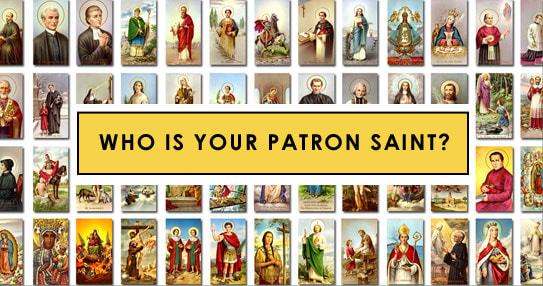
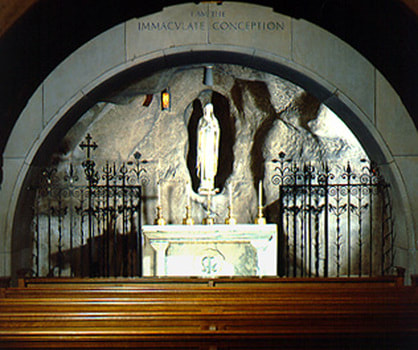
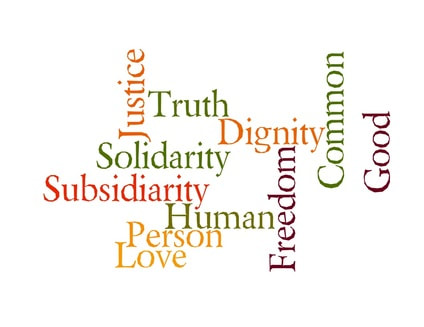

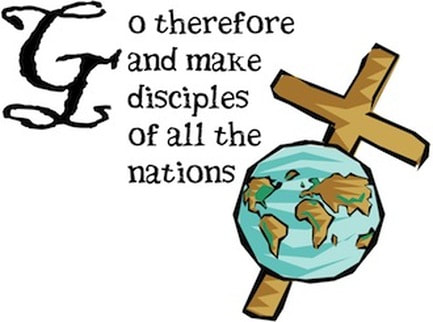
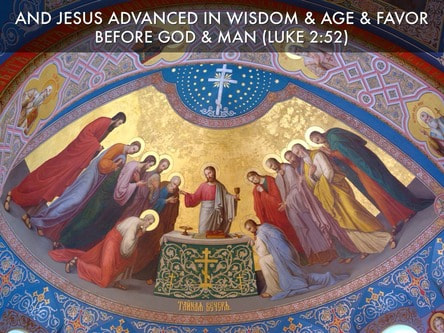
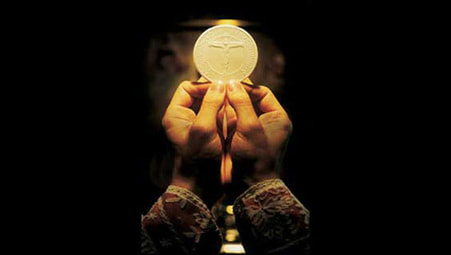
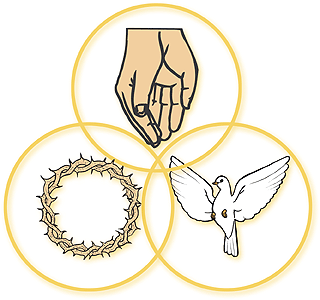

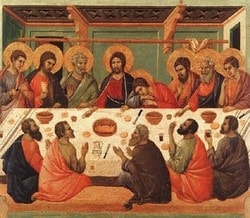
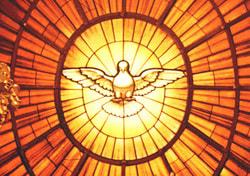
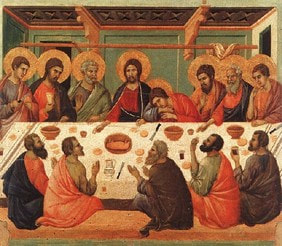
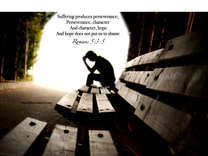



 RSS Feed
RSS Feed